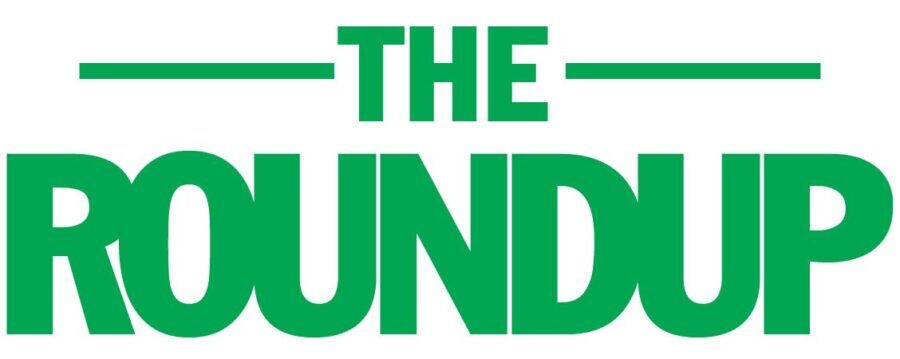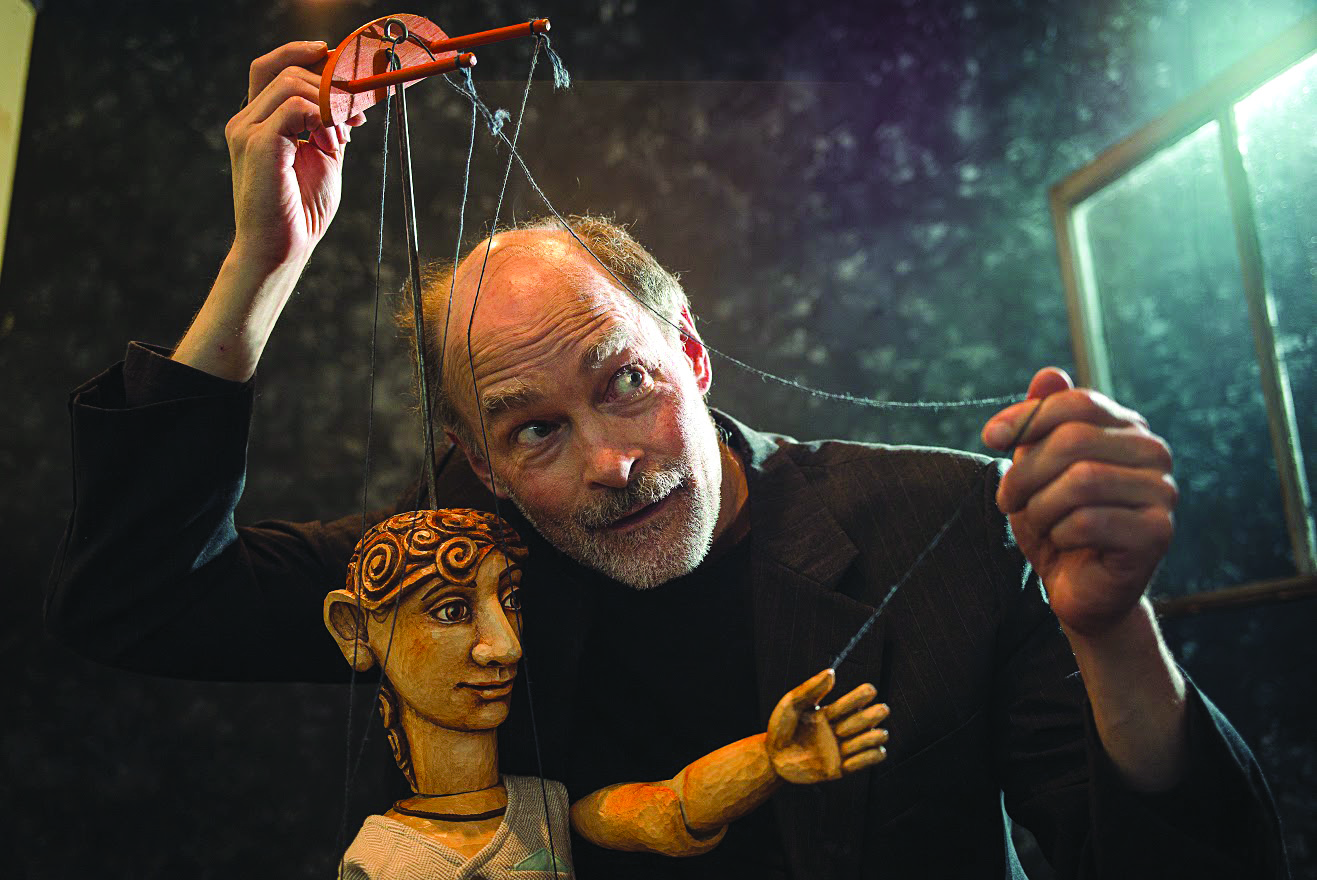2020 became a year of unexpected innovation for arts organizations
In 2020, we saw art galleries and performance venues closed, shows and festivals canceled and classes and programs suspended. But in the face of the many challenges brought about by Covid-19, the New Hampshire arts community did what it does best: It got creative.
“Many New Hampshire arts organizations and artists are finding creative ways to engage the public during the pandemic, reimagining events and activities in both physical and virtual spaces,” said Ginnie Lupi, director of the New Hampshire State Council on the Arts.
Performance venues erected new outdoor stages and spaces to welcome socially distanced audiences; theater companies, musicians and authors accommodated audiences at home through livestreamed and recorded shows and discussions, and educators in the arts carried on with classes and lessons remotely.
Now, as a Covid vaccine brings hope that a return to normalcy is on the horizon, artists and arts organizations are reasoning that the solutions they improvised to get through the pandemic may still have merit in a post-pandemic world.
“We expect many of these changes to become permanent,” Lupi said. “Many organizations are finding that online performances and activities are reaching more diverse and distant audiences.”
Living room theater
The Majestic Theatre in Manchester is one of many local theater companies that installed new video equipment to offer virtual performances.
“The virtual component has been a valuable tool to share our performances with those who are homebound,” artist director and CEO Rob Dionne said. “Now, a virtual component will be a part of most of our shows moving forward.”
Genevieve Aichele, executive director of New Hampshire Theatre Project in Portsmouth, said that purchasing new video, audio and computer equipment and hiring a part-time associate producer for media was an advantageous use of the CARES relief funds it received.
“The board and staff of NHTP views this as an investment for the future,” she said. “NHTP will be continuing to offer programs online for the foreseeable future.”
Though New Hampshire Theatre Project is presenting in-person performances again, it and many other theater companies that are able to do so are now using both formats, giving audiences the flexibility to experience theater in a way that meets their needs and comfort level. Aichele said the virtual option remains the most popular, noting that New Hampshire Theatre Project’s November production of The Adventures of Sleepyhead brought in 36 tickets for the in-person show and 245 tickets for the virtual one.
Matt Cahoon, artistic director of Theatre Kapow in Manchester, said the company’s “significant [investment in] time, energy and money” to offer virtual performances will “define this company for the next decade.”
“I would hate to see us just leave that behind,” he said. “I imagine that some of the technology will come back with us, and that we will find ways to meld together the live and virtual experiences.”
Unexpectedly, Cahoon said, the virtual format has given Theater Kapow the opportunity to enhance the theater experience for audiences by incorporating storytelling elements that aren’t feasible on a live stage. For example, the use of cameras allows him to draw the audience’s attention to small details that they might miss in person.
“The audience’s perspective of the actors was closer than ever,” he said. “It seems impossible to me to go back to a time where we say to audiences, ‘OK, you sit over there in the dark and we will be up here with the lights on us.’”
Art on screen
The visual arts have also found a new place in the virtual realm, with many arts organizations and art galleries shifting to an online format.
Lauren Boss, co-president of the Nashua Area Artists’ Association, said the Association moved its operations online when the months-long closure of its brick-and-mortar art gallery, ArtHub, limited members’ opportunities to sell their art.
“The pandemic forced us to figure out how to make e-commerce work for us,” she said. “This is something that will definitely remain after the masks are gone.”
The League of New Hampshire Craftsmen made a successful transition online after Covid made it impossible for the League to host its annual Craftsmen’s Fair in-person. The nine-day arts and crafts fair held in August at Mount Sunapee Resort typically draws 20,000 paying attendees, provides 80 percent of the League’s yearly operating income and is the largest opportunity for more than 300 local and regional artisans to sell their work; canceling the event altogether, League executive director Miriam Carter said, was simply not an option.
The League held the fair virtually on its website by providing links to the artisans’ online shops as well as a virtual exhibition tour and exclusive video content including craft demonstrations, musical performances and guided try-at-home craft projects for all ages.
While the virtual fair was a success in that artisans were still able to sell their work, it also had some silver linings that extended far beyond the fair itself, Carter said.
“[It] inspired 80 of our craftsmen to create websites or online sales capability for the first time,” she said. “This is a significant and welcome culture shift in a membership that is generally slow to adopt technological innovation … [and gives] craftsmen online tools they need to sustain their business through the Covid era and beyond.”
Carter said the League plans to make virtual elements a permanent feature of the Craftsmen’s Fair moving forward.
Learning from home
During the pandemic, many local arts organizations started offering classes, lessons and educational programs remotely, with students and educators meeting over video conferencing apps like Zoom, and some plan to continue offering remote education as an option indefinitely.
New Hampshire Writers’ Project hosted its annual 603: Writers’ Conference, normally held in Manchester in the spring, remotely in October. The reimagined 603: Writers’ “Sit and Click” Virtual Conference featured most of the same activities as the in-person conference, including panels, classes and a keynote speaker, accessible live on Zoom and through recordings that were available to participants for 90 days following the conference.
“We also have become more creative with our programming,” New Hampshire Writers’ Project board chair Masheri Chappelle said.
Many of New Hampshire Writers’ Project’s regular programs are now offered virtually, which has increased membership and participation, including writers from as far as Utah and Australia.
Peggy Senter, president of Concord Community Music School, said there has always been a number of students who travel from out of state to participate in the school’s programs as well as students who discontinue their education after moving farther from the school. Remote classes and lessons have eliminated that barrier, she said, and have proven to be “a wonderful opportunity for people who live far away and otherwise wouldn’t be able to participate.”
“Going forward, we will most likely offer remote learning to those who would be unable to participate due to distance, illness or adverse weather,” she said.
Additionally, virtual student recitals have given students a chance to share their musical abilities with people who would not be able to attend the recital in person.
CCMS has produced 11 student recitals on YouTube since March, Senter said, the most recent of which featured 40 students.
“Going forward, we will look forward to in-person recitals again, but also having a recorded version is allowing friends and family to access these performances from around the country and the world,” she said.
Supporting the arts
Lupi said that while the creativity exhibited by the New Hampshire arts community to keep the arts alive has been “encouraging” and “speaks to the value of the arts,” local arts organizations aren’t out of the woods yet.
“The pandemic will definitely have an ongoing, long-term impact on New Hampshire’s arts sector,” she said. “Some organizations and businesses may not survive, and those that do will have a long financial and programmatic recovery. … More aid to the sector will definitely be necessary for 2021 and beyond.”
Featured photo: Peter Josephson in Theater Kapow’s virtual production of A Tempest Prayer in November 2020. Photo by Matthew Lomanno.







